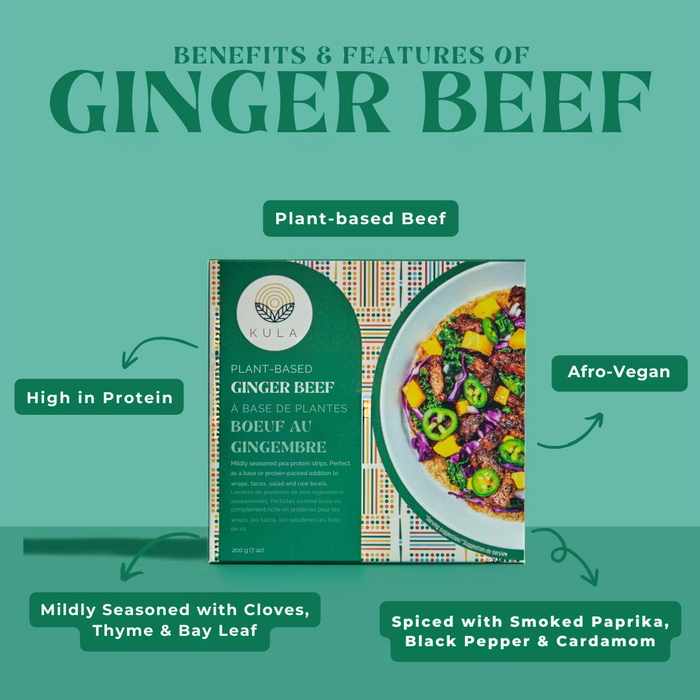10 Surprising Health Benefits of Swapping Meat for Plant Based Chicken
10 Surprising Health Benefits of Swapping Meat for Plant Based Chicken
Blog Article
All About Healthy Food: Benefits of Enjoying Plant Based Alternatives
The conversation surrounding plant-based diets has actually obtained significant focus in current years. Many people are exploring the prospective health advantages, nutritional advantages, and environmental effects related to these dietary options. As individuals end up being extra conscious of their food's impact on well-being and sustainability, questions emerge regarding the practicalities of adopting such a way of living. What details adjustments can one expect, and just how might these selections reshape not just individual wellness but also the earth's future?
Comprehending Plant-Based Diet Plans
Although many individuals connect plant-based diet regimens mainly with vegetarianism or veganism, these diet regimens can include a large range of eating patterns that focus on whole, minimally refined plant foods. Such diet plans commonly consist of fruits, vegetables, entire grains, seeds, legumes, and nuts, while eliminating or restricting animal items. This adaptability enables individuals to tailor their nutritional choices according to dietary needs and individual preferences. Some may take on a mainly plant-based diet plan while still sometimes consuming meat or milk, usually referred to as a flexitarian method. The emphasis remains on including even more plant foods, which can result in a varied array of meals and flavors. Understanding these different interpretations of plant-based eating is essential for appreciating its availability and allure in contemporary food society.
Wellness Conveniences of Plant-Based Foods
The health benefits of plant-based foods are substantial, providing a nutrient thickness benefit that supports overall well-being. Research study suggests that these foods can enhance heart wellness and play an important function in effective weight management. By incorporating much more plant-based choices, individuals might enhance their dietary choices and advertise long-term health and wellness.
Nutrient Thickness Advantage
Nutrient density plays a crucial role in the health advantages of plant-based foods, making them an engaging selection for those seeking a balanced diet. Plant-based foods, such as fruits, veggies, beans, nuts, and whole grains, are frequently rich in important vitamins, minerals, and antioxidants while being reduced in calories. This high nutrient density permits people to eat fewer calories while still fulfilling their dietary requirements. Furthermore, these foods are packed with nutritional fiber, advertising digestive system health and wellness and aiding in weight management. By incorporating nutrient-dense plant-based alternatives, customers can enhance their total wellness, sustain their immune systems, and decrease the danger of chronic conditions. Ultimately, the nutrient density of plant-based foods highlights their significance in a health-conscious lifestyle.
Heart Health And Wellness Improvement

Weight Management Support
In enhancement to advertising heart health and wellness, a plant-based diet can considerably assist in weight administration. This nutritional technique emphasizes entire foods such as fruits, vegetables, legumes, nuts, and entire grains, which are normally lower in calories and greater in fiber compared to animal-based products. The high fiber web content assists raise satiation, decreasing total calorie intake. In addition, plant-based diet plans are usually abundant in vital nutrients while reduced in undesirable fats, making it easier to keep a healthy weight. Plant Based Beef. Study indicates that individuals that adopt a plant-based way of living tend to have lower body mass indexes (BMIs) and experience more successful fat burning compared great post to read to those that eat Full Report meat-heavy diets. Consequently, welcoming plant-based options is a calculated selection for reliable weight management
Nutritional Value of Plant-Based Components
Plant-based components are abundant in necessary nutrients, providing a diverse variety of vitamins, minerals, and anti-oxidants that add to total health and wellness. A contrast of protein resources discloses that while animal products are usually deemed exceptional, numerous plant-based choices supply ample protein and various other advantageous compounds. Comprehending the nutritional value of these ingredients can help individuals make informed dietary options.
Vital Nutrients in Plants
Nutrient-rich components discovered in plants provide a varied variety of necessary minerals and vitamins that contribute substantially to overall health. These ingredients are abundant in vitamins A, C, and K, which support immune function, vision, and blood clotting, specifically. On top of that, plants supply important minerals such as magnesium, potassium, and calcium, important for heart health and wellness, muscle feature, and bone toughness. The visibility of fiber in plant-based foods help digestion and advertises a healthy gut microbiome. Anti-oxidants, located generously in fruits and vegetables, assistance battle oxidative tension and decrease inflammation. Several plant foods are low in calories yet high in nutrients, making them an excellent option for those seeking to preserve a healthy weight while guaranteeing excellent nutrient intake.

Contrasting Protein Resources
Protein resources vary considerably in their dietary profiles, with plant-based active ingredients using unique benefits. Unlike pet proteins, which often include saturated fats and cholesterol, plant healthy proteins tend to be reduced in these harmful components. Legumes, nuts, seeds, and whole grains are rich in crucial amino acids, fiber, vitamins, and minerals. Lentils give high protein material together with significant iron and folate, while quinoa is a full protein, offering all nine crucial amino acids. Furthermore, plant-based proteins are frequently gone along with by anti-oxidants and phytochemicals that support overall health and wellness. The shift to plant-based protein resources not only improves dietary consumption yet also straightens with sustainable dietary techniques, lowering environmental effect and advertising long-term health and wellness advantages.
Ecological Impact of Plant-Based Consuming
As awareness of environment modification grows, many individuals are exploring sustainable dietary options that can significantly reduce their ecological footprint. Plant-based consuming has actually become a substantial contributor to minimizing greenhouse gas emissions, which are largely connected with livestock production. The cultivation of fruits, vegetables, grains, and vegetables normally calls for less resources, such as water and land, contrasted to animal farming. Additionally, plant-based diets can bring about lowered logging, as less land is required for grazing livestock or growing pet feed. By shifting in the direction of plant-based alternatives, customers can support biodiversity and advertise much healthier ecological communities. On the whole, accepting plant-based eating not just advantages individual health yet also represents a crucial step towards ecological sustainability and preservation efforts.
Conquering Common Misconceptions
While several people acknowledge the advantages of a plant-based diet regimen, numerous misconceptions usually hinder them from completely embracing this lifestyle. A typical belief is that plant-based diet plans do not have enough healthy protein; nonetheless, countless plant resources, such as legumes, nuts, and tofu, supply ample healthy protein. Additionally, some assume that this diet regimen is expensive, when as a matter of fact, staples like beans, rice, and seasonal veggies can be quite cost effective. An additional misunderstanding is that plant-based eating is extremely limiting, whereas it in fact offers a varied variety of flavors and foods. Ultimately, numerous fret that a plant-based diet plan might bring about shortages, yet with correct preparation, individuals can obtain all needed nutrients, including minerals and vitamins, while appreciating a broad range of scrumptious dishes.
Tips for Transitioning to a Plant-Based Way of living
Making the change to a plant-based lifestyle can be an enriching experience, though it frequently needs some support to navigate the initial adjustments. Individuals are encouraged to begin progressively, including even more fruits, vegetables, vegetables, and entire grains into their dishes while decreasing meat and dairy consumption. Meal preparation is essential; preparing a regular food selection can assist alleviate the adjustment and avoid final undesirable options. Checking out cooking methods and brand-new dishes can also preserve and enhance the experience enjoyment concerning plant-based eating. Furthermore, signing up with assistance teams or neighborhoods can provide inspiration and share important ideas. Remaining educated regarding nutrition guarantees well balanced meals, protecting against shortages while cultivating a healthy and balanced, rewarding plant-based lifestyle.

Delicious Plant-Based Meal Ideas
Exploring tasty plant-based dish concepts can motivate individuals to embrace a much more nourishing diet. One prominent alternative is a hearty quinoa salad, including cherry tomatoes, cucumber, and a spicy lemon-tahini dressing. One more favorite is a mouthwatering lentil stew, packed with carrots, celery, and great smelling herbs, perfect for a calming dinner. For breakfast, overnight oats made with almond milk, chia seeds, and topped with fresh berries offer a nutritious beginning to the day. Furthermore, a dynamic vegetable stir-fry with this link tofu and a selection of colorful veggies can be a fast yet pleasing meal. Ultimately, creamy avocado salute on whole-grain bread, sprinkled with flavors and seeds, supplies an easy yet savory snack. These dishes showcase the selection and splendor of plant-based consuming.

Often Asked Concerns
Can a Plant-Based Diet Supply Enough Healthy Protein?
The question of whether a plant-based diet can provide sufficient healthy protein prevails. Many resources, including vegetables, nuts, seeds, and whole grains, can fulfill protein requires effectively, supporting a balanced and nourishing diet regimen for individuals.
Are Plant-Based Diet Regimens Suitable for Kid?
The viability of plant-based diet regimens for kids depends upon cautious preparation. Adequate nutrients have to be guaranteed, including proteins, vitamins, and minerals. With correct assistance, such diet regimens can sustain healthy and balanced growth and development in youngsters.
How Do I Eat in restaurants on a Plant-Based Diet?
Eating out on a plant-based diet regimen includes seeking restaurants with diverse food selections, requesting for modifications, and checking out vegan-friendly alternatives. Planning in advance and interacting dietary choices can boost the eating experience while preserving dietary choices.
What Are Common Irritants in Plant-Based Foods?
Typical irritants in plant-based foods include soy, gluten, nuts, and seeds - Plant Based Chicken. People adhering to a plant-based diet needs to be mindful of these irritants and check out labels carefully to avoid damaging reactions and ensure safe intake
Can Plant-Based Diets Aid With Fat Burning?
Research suggests that embracing a plant-based diet might facilitate weight-loss due to its commonly reduced calorie thickness and higher fiber content. This mix can enhance satiety, assisting people manage their caloric intake properly. Several individuals connect plant-based diet regimens primarily with vegetarianism or veganism, these diet plans can include a broad variety of consuming patterns that focus on entire, minimally processed plant foods. Nutrient thickness plays an essential duty in the wellness benefits of plant-based foods, making them a compelling choice for those looking for a balanced diet. Plant-based diet plans have been revealed to markedly enhance heart health, as they frequently include aspects that support cardiovascular function. In addition to promoting heart health, a plant-based diet regimen can considerably help in weight management. An usual idea is that plant-based diet regimens do not have adequate healthy protein; however, countless plant resources, such as vegetables, nuts, and tofu, give sufficient healthy protein.
Report this page